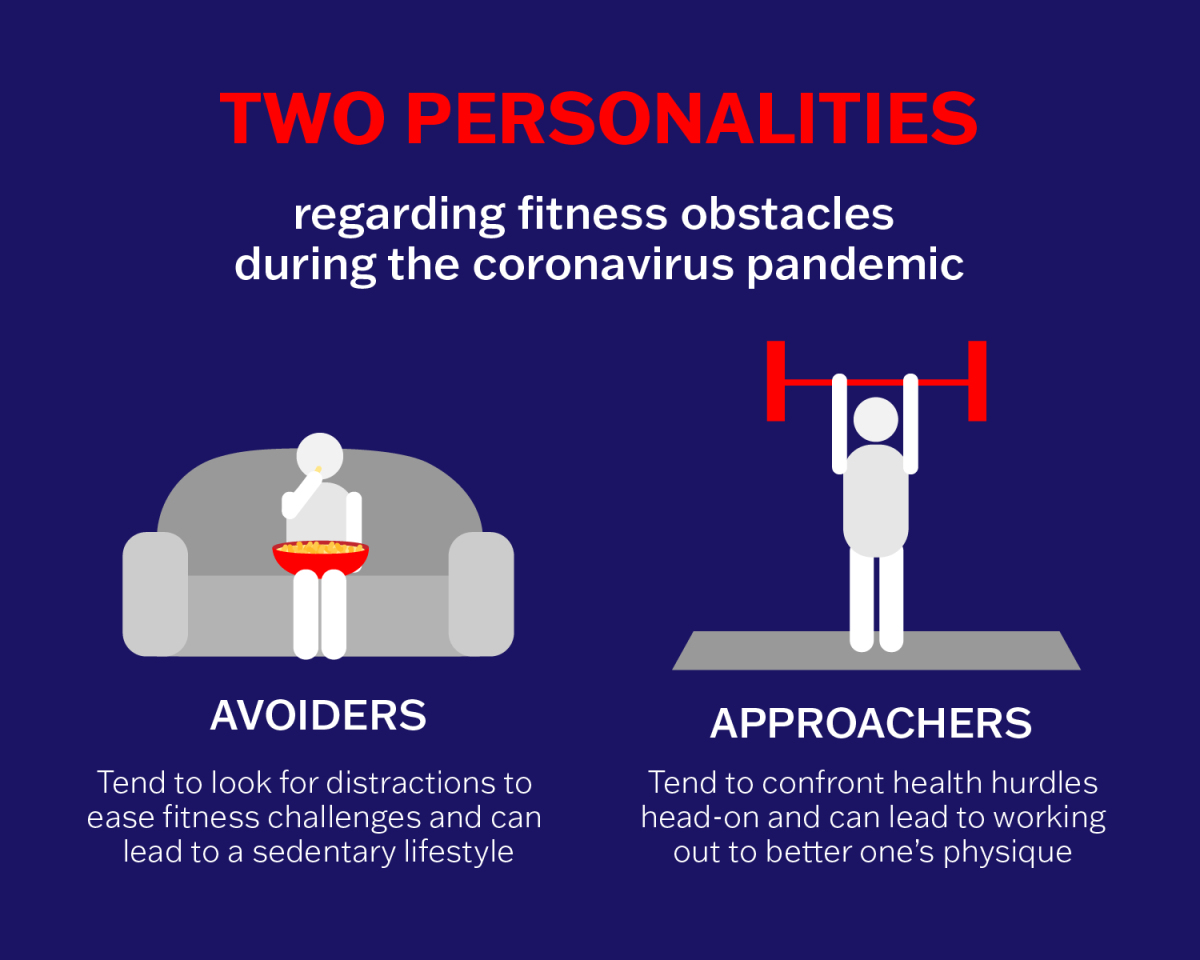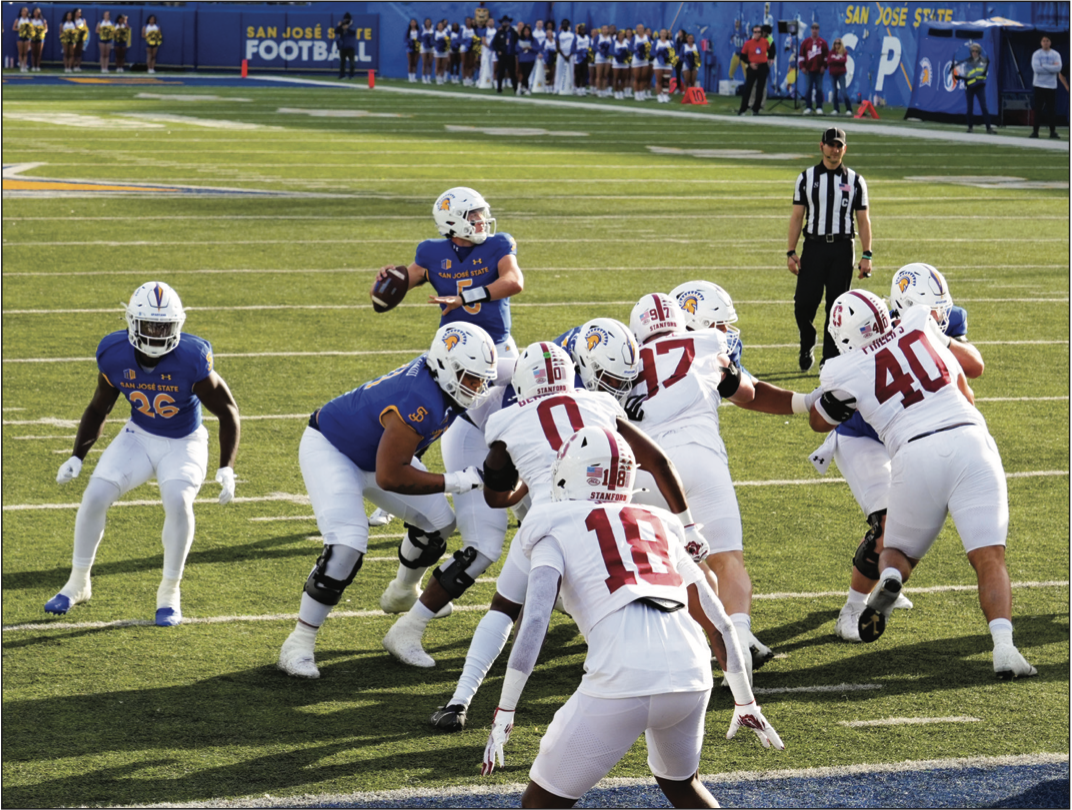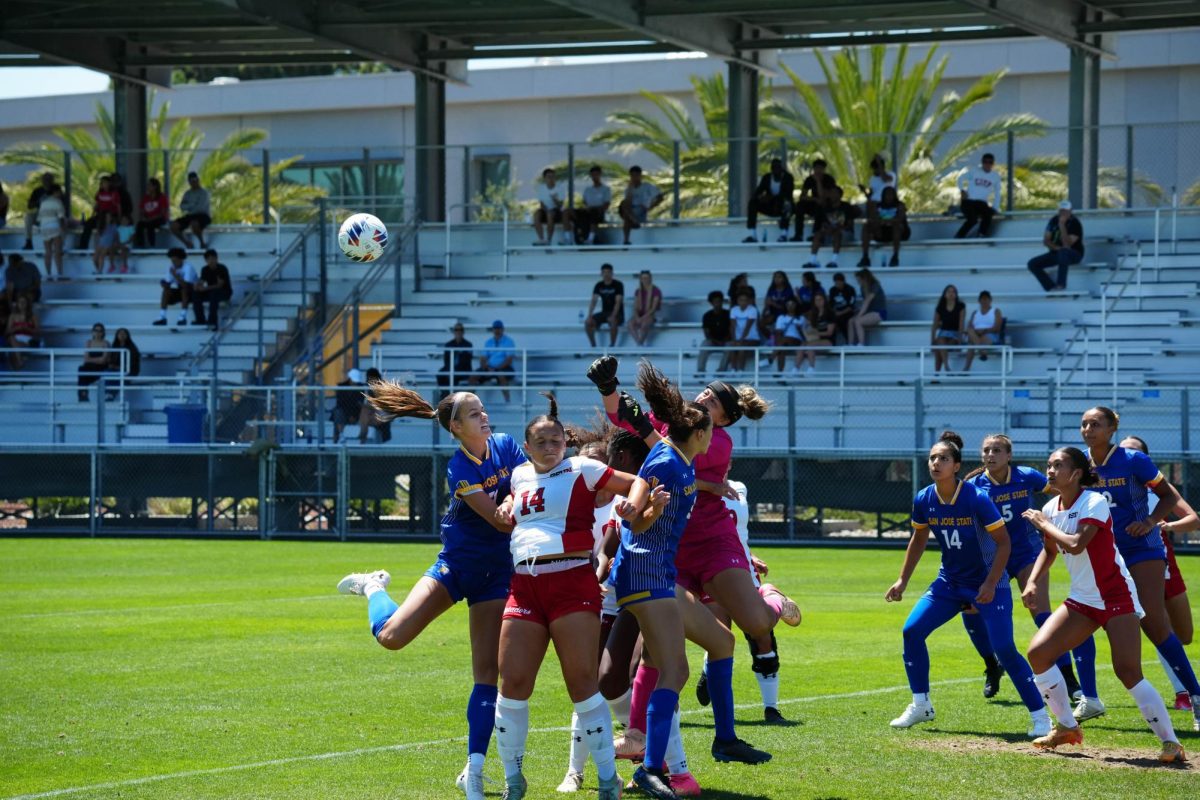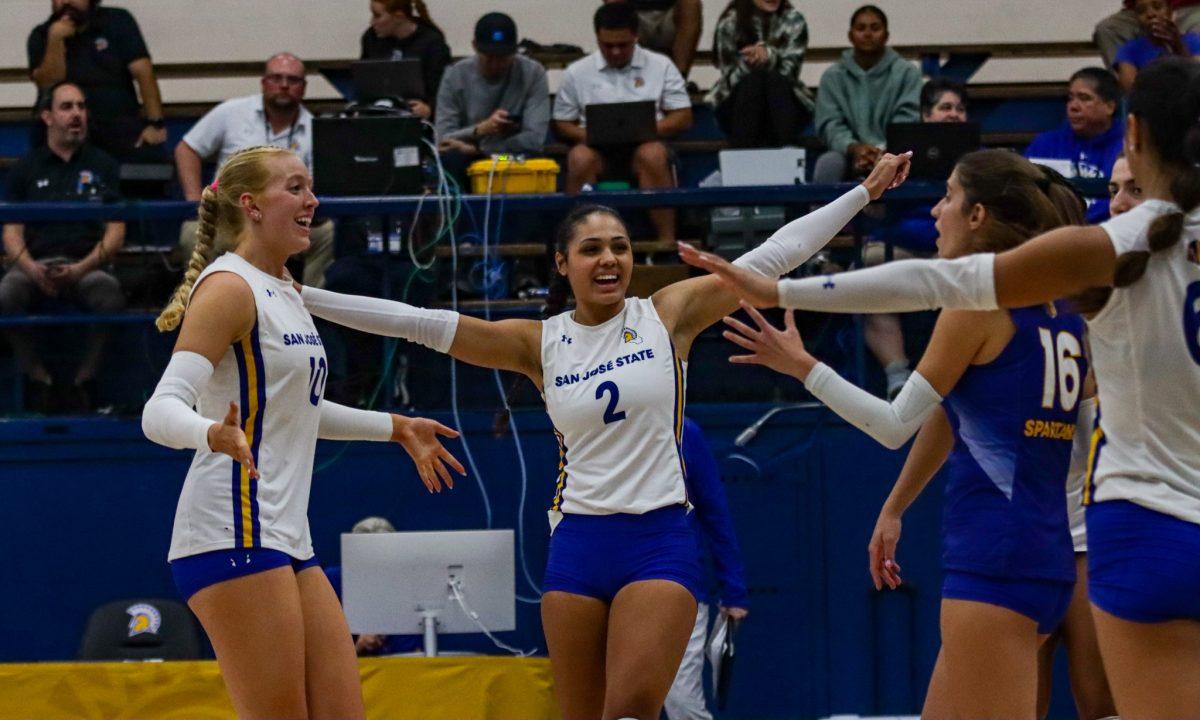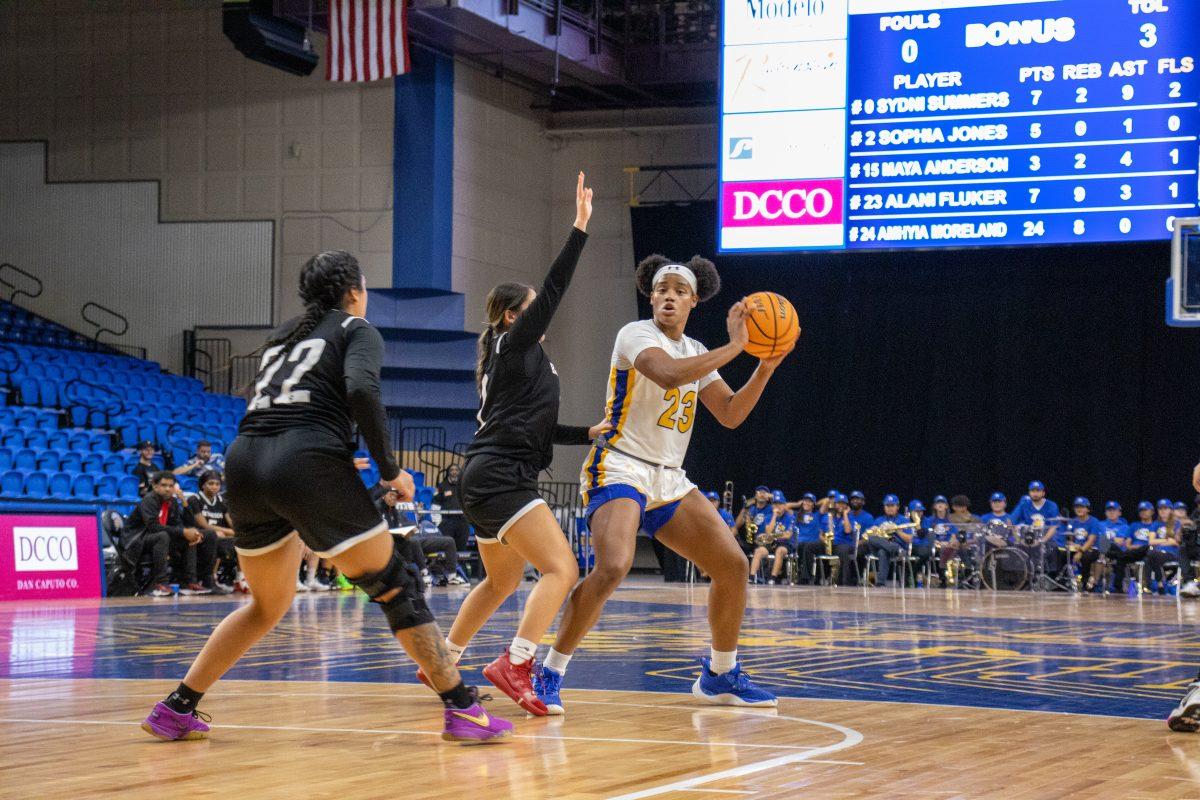The coronavirus pandemic has impacted everyone differently, especially when it comes to health and fitness. While quarantine has given some San Jose State students encouragement to work out, others have lost motivation through a more sedentary lifestyle.
Paige Waid, a communications junior, took advantage of quarantine by changing her diet and adopting a healthier lifestyle.
“My main motivation was doing it for myself because I wanted to be healthy and to feel better about myself,” Waid said in a Zoom interview.
She also said being away from campus and receiving encouragement from her dad, whom she lived with from March to August, were big factors in her pursuit for a healthy lifestyle.
“It was just me at home with my parents, so I would eat what my dad ate or just make food for myself,” Waid said.
While Waid’s fitness journey took off during quarantine, kinesiology junior Artie McNeal said his healthy living ground to a halt.
McNeal, a former professional boxer and Army veteran, said taking online classes contributed to a loss of incentive to exercise.
“I didn’t really have the motivation to work out anymore because I couldn’t go to class,” McNeal said in a Zoom call. “I was just sitting in front of this computer and my diet started suffering because I was just munching on all kinds of crap.”
He also said he exercised two to three hours every day prior to the pandemic and the interruption to his routine has been hard on his mental health.
“I get stressed out and I have to do deep breathing to relax,” McNeal said.
There are many personal and environmental factors that play into how people react to the lack of activity brought on by the pandemic.
Kinesiology and sports psychology lecturer Karin Jeffery said when people are confronted with obstacles they usually fall into two categories: avoiders and approachers.
Where people fall within these categories depends on a combination of personality traits, experiences and their environments.
“Avoiders may tend to look for things that are distracting and fun to take their mind off of how they’re feeling, whereas people with approach-type personalities might look for ways to face the situation head-on,” Jeffery said in a Zoom interview.
She also said people with approach-type personalities are more likely to try something new in order to change their situation, which is why so many people began working out during the pandemic.
However, it isn’t a personal or moral failure to fall out of shape during a global public health crisis, especially when many factors are out of people’s control.
It’s easy to fall into sedentary habits and become depressed under quarantine conditions, Jeffery said, but it’s hard to break that cycle once
it starts.
“When you start to get depressed, it gets harder to embrace a new challenge,” she said. “Even if you know in your head that it’s good for you, sometimes you just don’t have the energy to do it.”
While long-term health effects of quarantine are unknown, Waid and McNeal are both optimistic about their fitness journeys in post-pandemic life.
McNeal said after the pandemic he hopes to return to the level of fitness he was at before and to start his own workout class at the Spartan Recreation and Aquatic Center.
Waid said she plans to continue eating clean and staying healthy, even when obstacles from
pre-quarantine life return.
“Not every day is going to be perfect but as long as you keep working toward your goal, let yourself try the next day and make a conscious effort, you’ll eventually get to where you’re going,” Waid said.





































